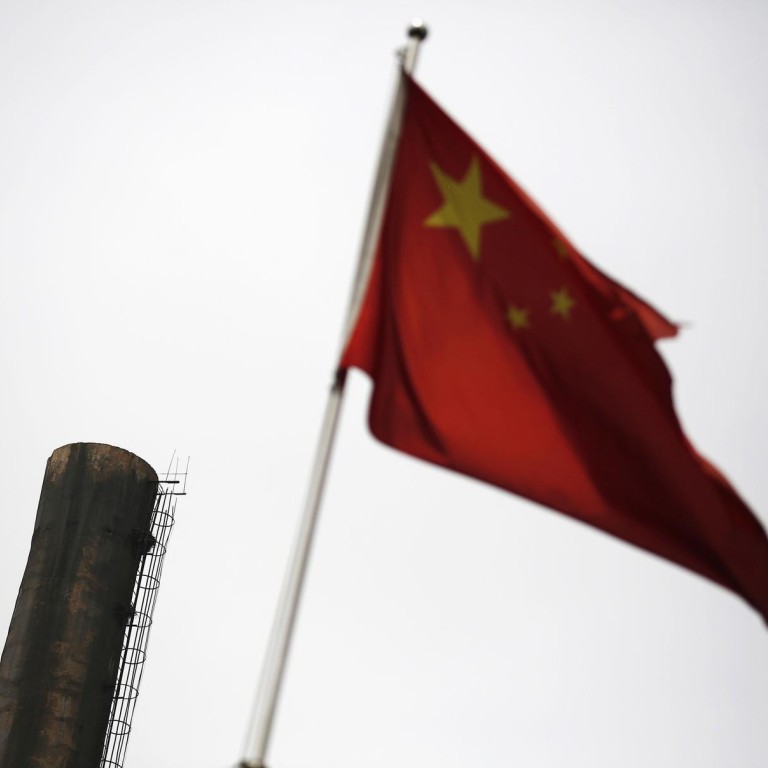
State sector is China's secret sauce
Corrupt and inefficient they may be, but China's government-controlled institutions have proven over the years they can fulfil the people's needs
It is too early to say if China has achieved economic success, even after 36 years of consistently high growth.
Observers around the world say state-driven economies tend to be corrupt and inefficient and that China's is no exception.

In an ideal world, it should scrap the existing state capitalism and build from scratch a set of inclusive institutions, similar to those in the United States or Britain. But we live in an imperfect world, where historical accidents have a more profound impact on our destiny than elaborate designs do.
The history of the past 36 years is a blip for China, but it offers some clues as to why the state sector has helped China - and why it will be helpful in the decades ahead.
China has one of the most celebrated economic achievements among developing countries under its belt, as seen in its alleviation of poverty, its construction of functioning infrastructure and its globally relevant manufacturing industry.
In contrast with India and other Third World countries, where hundreds of millions of impoverished citizens roam the streets, China's state sector provides a safer, surer and more productive answer to their economic needs. Economies of scale aside, the state sector has provided essential organisation, capital and the ability to survive turbulence collectively. That is the Chinese edge, like it or not.
When hundreds of millions of helpless citizens are left to fend for themselves, without essential public necessities such as water, shelter, toilets, education and health care, what is the justification for the governments to indulge themselves in the free-market religion and - dare I say it - democracy?
I must confess I can never echo the praise Gurcharan Das has lavished on India's "weak state, but strong society". To me, his latest book, , is just a desperate call for a big and effective state sector.
For sure, relative to the shortage of capital, the shortage of governance and organisational skills is a challenge for developing nations. China's state sector has at least partially filled this void.
Many studies have found that governments in the US and Europe were interventionist in the early stages of their countries' economic development - and remain so even today despite their free-market appearance.
Since 1949, China's state sector has created not only jobs but also many completely new sectors - including green energy, aerospace, carmaking and shipbuilding - in which private enterprises can do business.
Today, China boasts the best infrastructure (roads, ports, airports, telecommunications and even factories) among developing countries, thanks to the state sector's high tolerance for low returns and its long time horizon.
It is true that all these expensive ventures are funded by taxes and hidden taxes (the inflation generated by the central bank's printing presses). But isn't this infrastructure building part of what the state sector (and the government) is supposed to do?
The problem is that China's state-controlled enterprises compete directly with the private sector on an uneven playing field.
They crowd out private enterprises, worsen corruption and depress private firms' expected returns on investment. As a result, they have attracted public condemnation.
But I contend that China has persisted with state capitalism with its eyes wide open.
No one in China has any doubt that the state sector is corrupt and inefficient. They know equally well, however, that the alternative is much worse.
Chinese citizens may well envy what the West has achieved with its various brands of capitalism, but there are reasons to doubt the feasibility of it working for China. Why? Because the public has also chosen to stay the course and resist change.
To be sure, the lack of an alternative was mainly a result of the Communist Party's authoritarian rule. But the reality is that if there were a public referendum on free-market capitalism versus state capitalism, I believe the public would overwhelmingly endorse state capitalism.
Critics will say that is because the party has brainwashed the public for over 65 years. But that is an insult to the intelligence of the public, in my opinion.
It remains to be seen whether China's state sector will be the answer to the country's many challenges: inequality, inefficiency, asset inflation, pollution and resource depletion.
But judging from graduates' overwhelming preference for state enterprises and the civil service as employers, the public seems willing to give the state sector an extended lease on life.

